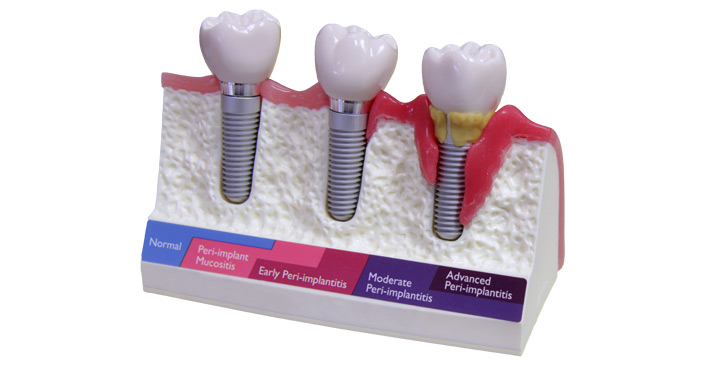- Although dental implants are an excellent option for replacing missing teeth, they are a medical device that can over their lifetime, for a variety of reasons, be associated with disease processes.
- Your dentist may have found gum recession around your implant, deep probing depths, bleeding, pus, bone loss, or you may be experiencing discomfort at the site.
- Progressive inflammatory processes may be isolated to your surrounding gums (peri-implant mucositis) or involve progressive bone loss around your implant (peri-implantitis).
- There are a variety of reasons for this to occur, some of which include active periodontal disease, smoking, change in systemic health, poor oral hygiene, cement leftover from crown placement, loose or fractured component, open margins or contacts, unideal bite, poorly fabricated crown or implant placement, not enough bone and/or gums to begin with, and so on.
- Regardless of the reason, if your dentist has diagnosed you with some type of problem around your dental implant, it is important to have it evaluated, just like if it were your own natural tooth.
- Sometimes there are treatments or solutions to help with your problematic implant. However, in some circumstances, there is nothing that can improve the situation, and it may be in your best interest to remove the implant.


